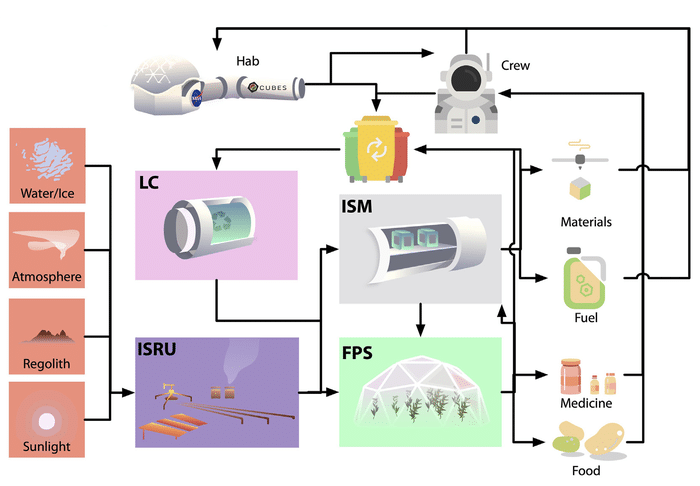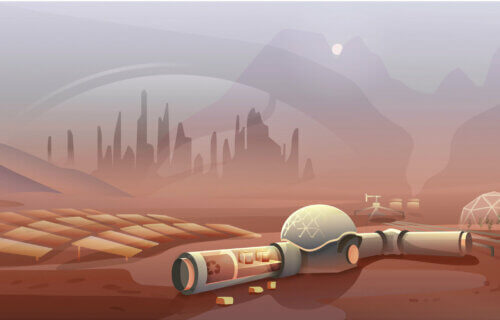BERKELEY, Calif. — Solar power could provide all the energy needed for an extended mission to Mars, according to a new study. The evolution in solar cell technology means that the sun could even power a permanent settlement on the Red Planet, say scientists.
Solar does as well or is comparable to nuclear power when it comes to energy on Mars, according to scientists at the University of California, Berkeley. It does have downsides in that it must be stored for use at night, which lasts about the same length of time as on Earth. Production can also be stifled by the red dust that covers the planet.
NASA’s 15-year-old Opportunity rover, powered by solar panels, stopped working after a massive dust storm in 2019.
Solar panels are however better because they are far lighter and at times more efficient than nuclear.

“Photovoltaic energy generation coupled to certain energy storage configurations in molecular hydrogen outperforms nuclear fusion reactors over 50 percent of the planet’s surface, mainly within those regions around the equatorial band, which is in fairly sharp contrast to what has been proposed over and over again in the literature, which is that it will be nuclear power,” says Aaron Berliner, a bioengineering doctoral student at the university and one of the paper’s two first authors, in a statement.
Adds co-first author Dr. Anthony Abel, a graduate student in the Department of Chemical and Biomolecular Engineering: “If humanity collectively decides that we want to go to Mars, this kind of systems-level approach is necessary to accomplish it safely and minimize cost in a way that’s ethical. We want to have a clear-eyed comparison between options, whether we’re deciding which technologies to use, which locations to go to on Mars, how to go and whom to bring.”
The study is published in the journal Frontiers in Astronomy and Space Sciences.
Report by South West News Service writer.
